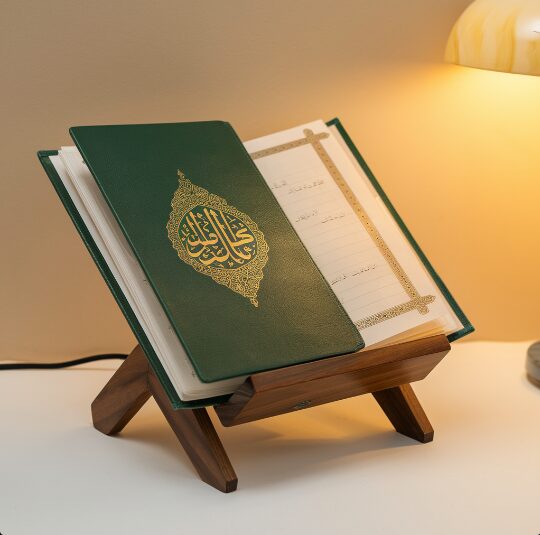Divisions within Islam for Shia or Sunni Muslims 2025
Divisions within Islam, particularly between Shia and Sunni Muslims, have been a topic of discussion for centuries. Both sects share the same foundational beliefs in Islam but differ in certain interpretations and historical perspectives.
To explore divisions within Islam for Shia Muslims or Sunni Muslims, it’s essential to understand that the Quran, as the divine revelation to Prophet Muhammad (PBUH), is the central religious text for all Muslims. It does not specifically mention Shia or Sunni by name, as these sects emerged after the death of the Prophet. The Quran speaks directly to the Muslim community as a whole, emphasizing unity, submission to Allah, and guidance for living a righteous life.
Unity in the Quran
One of the most significant themes in the Quran is unity. Islam is built on the concept of Tawhid (the oneness of God), and this extends to the unity of the Muslim Ummah (community). The Quran consistently emphasizes that all believers are part of one brotherhood under Islam.
In Surah Al-Hujurat (49:10), the Quran declares:
“The believers are but a single brotherhood, so make peace between your brothers, and fear Allah that you may receive mercy.”
This verse does not specify Shia or Sunni; it simply calls for unity among all Muslims, stressing that they are one community under the umbrella of faith in Allah and His Messenger. The schism between Sunni and Shia Muslims that occurred after the death of Prophet Muhammad was a result of political and historical circumstances, not because of any Quranic injunction.
The Origins of Sunni and Shia (Divisions within Islam)
The Sunni-Shia divide is primarily rooted in political disagreements that arose after the death of Prophet Muhammad (PBUH) in 632 CE. Sunni Muslims believe that the rightful successors to the Prophet, or caliphs, were the companions of the Prophet, starting with Abu Bakr. Shia Muslims, however, believe that the leadership should have remained within the Prophet’s family, specifically with his cousin and son-in-law, Ali ibn Abi Talib.
These differences in leadership succession have led to theological variations over time, but the core beliefs remain the same for both groups. Both Shia and Sunni Muslims pray to the same Allah, follow the same Quran, and recognize the Prophet Muhammad as the last and final prophet.
The Quran’s Focus on Faith, Not Sect
Nowhere in the Quran does it address specific sects or promote divisions. In fact, it warns against splitting into factions. Allah says in Surah Al-An’am (6:159):
“Indeed, those who have divided their religion and become sects—you, [O Muhammad], are not [associated] with them in anything. Their affair is only [left] to Allah; then He will inform them about what they used to do.”
This verse implies that dividing the religion into sects is against the essence of Islam. The Quran’s guidance is for all Muslims, not one particular group or another. In fact, the Quran calls for collective unity and discourages discord based on worldly divisions.
The Concept of the “True Muslim”
A central idea in Islam is that a “true Muslim” is defined by their faith, submission to Allah, and their good deeds, rather than their affiliation with a particular sect. Surah Al-Baqarah (2:177) outlines what true righteousness entails:
“Righteousness is not that you turn your faces toward the east or the west, but [true] righteousness is in one who believes in Allah, the Last Day, the Angels, the Book, and the Prophets and gives his wealth, in spite of love for it, to relatives, orphans, the needy, the traveler, those who ask [for help], and for freeing slaves; [and who] establishes prayer and gives zakah; [those who] fulfill their promise when they promise; and [those who] are patient in poverty and hardship and during battle. Those are the ones who have been true, and it is those who are the righteous.”
This verse transcends sectarian identity. It defines a Muslim based on faith and actions rather than their place in a particular group. The emphasis is on belief in Allah, performing good deeds, and practicing justice and mercy.
Unity Despite Differences (Divisions within Islam)
While Shia and Sunni Muslims may differ in some rituals and interpretations of history, the Quran encourages Muslims to focus on their shared beliefs. These shared values include belief in Allah, following the teachings of Prophet Muhammad (PBUH), praying five times a day, fasting during Ramadan, paying zakat, and performing the pilgrimage to Mecca.
In Surah Aal-E-Imran (3:103), Allah commands:
“And hold fast, all of you together, to the Rope of Allah (i.e., this Quran), and be not divided among yourselves.”
This verse urges Muslims to adhere to the guidance of the Quran and to avoid division. It’s a reminder that while differences may exist, unity in faith and practice is paramount.
Bridging the Gap
Despite the theological and historical differences, many scholars believe that (divisions within Islam) Sunni and Shia Muslims can and should work towards understanding and unity. The Quran provides a blueprint for reconciliation by focusing on the fundamentals of faith and the shared obligations of all Muslims. By doing so, the emphasis shifts from division to cooperation in the pursuit of justice, peace, and piety.
The Prophet Muhammad (PBUH) himself spoke about the importance of unity within the Muslim community. He is reported to have said:
“The believers in their mutual kindness, compassion, and sympathy are just like one body. When one of the limbs suffers, the whole body responds to it with wakefulness and fever.” (Sahih Bukhari)
This hadith highlights the interconnectedness of the Muslim Ummah, regardless of sect, and echoes the Quranic message of unity and mutual support (divisions within Islam).
Conclusion
The Quran does not explicitly mention Shia or Sunni Islam because the division occurred after its revelation. Instead, it focuses on the principles of unity, faith, and submission to Allah. (Divisions within Islam)Both Shia and Sunni Muslims are followers of the same religion and believe in the same Quran and Prophet. The divisions that arose between them are historical and political rather than religiously mandated. The Quran encourages all Muslims to stay united and refrain from dividing into factions, calling on the community to follow the “straight path” and seek Allah’s guidance in all matters.
Thus, the Quran leaves room for all Muslims, regardless of their sect, as long as they believe in Allah and the teachings of the Prophet Muhammad (PBUH). The focus is on maintaining the core values of faith, unity, and brotherhood within the Muslim Ummah. Islam, as per the Quran, is a religion of oneness and solidarity, and its guidance transcends sectarian differences.
Read More…







